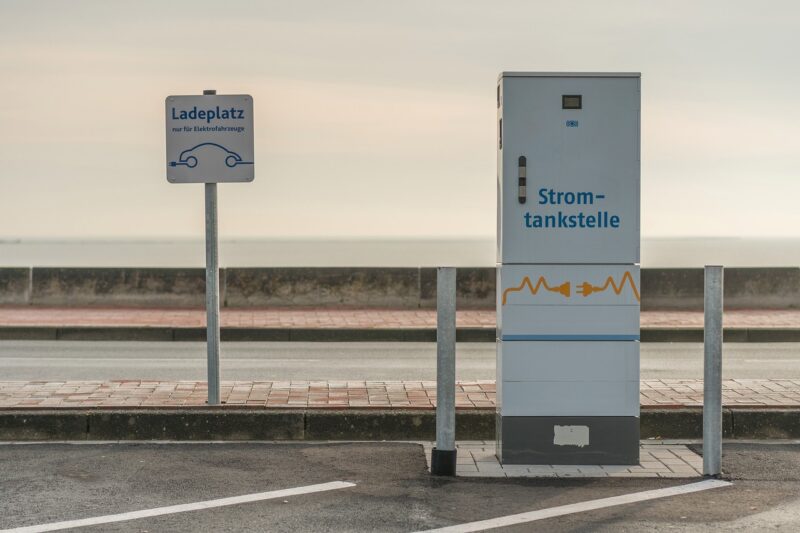The Pros and Cons of Owning an Electric Vehicle in Today’s Market
November 12, 2024

In recent years, the automotive landscape has undergone a significant transformation, largely due to the increasing popularity of electric vehicles (EVs). With environmental concerns and the need for sustainable transportation becoming paramount, electric vehicles are more than just a trend; they represent a pivotal shift in how we think about mobility. However, while electric vehicles offer a range of benefits, they also come with their own set of challenges. In this article, we will explore the pros and cons of owning an electric vehicle in today’s market.
1. Understanding Electric Vehicles in Today’s Market
Electric vehicles are powered by electric motors instead of traditional internal combustion engines (ICEs). They rely on batteries to store and supply power for propulsion. EVs can be charged at home, at public charging stations, or through various energy sources such as solar power. As of 2023, the market has expanded to include a diverse range of options, from compact cars to luxury SUVs, making it easier for consumers to find models that fit their needs.
2. The Pros of Owning an Electric Vehicle
Electric vehicles offer numerous advantages, making them an appealing choice for many drivers. Here are some of the most significant benefits:
- A. Environmental Benefits: One of the most compelling reasons to switch to an EV is the environmental impact. Electric vehicles produce zero tailpipe emissions, which can significantly reduce air pollution and greenhouse gas emissions. By choosing an EV, drivers contribute to cleaner air and a reduction in global warming potential.
- B. Cost Savings on Fuel: Electricity is generally cheaper than gasoline or diesel, which means that charging an EV can result in substantial cost savings over time. Many EV owners report monthly savings, especially as the price of fossil fuels continues to fluctuate. Additionally, some EV owners can take advantage of home solar panels to charge at little to no cost.
- C. Lower Maintenance Costs: Electric vehicles tend to have fewer moving parts than traditional vehicles, leading to less wear and tear. This means lower maintenance costs, as there are no oil changes, engine repairs, or exhaust system issues to worry about. Similarly, regenerative braking systems can extend the lifespan of brake components in EVs.
- D. Government Incentives: Many governments offer tax credits, rebates, and other incentives to encourage the adoption of electric vehicles. These financial incentives can help offset the higher initial purchase price of an EV, making it a more affordable option for new buyers.
- E. Enhanced Driving Experience: EVs are known for their smooth acceleration and quiet operation. The instant torque provided by electric motors leads to a responsive driving experience that many drivers find enjoyable. Additionally, most EVs come loaded with advanced technology and features that enhance overall convenience and comfort.
3. The Cons of Owning an Electric Vehicle
While electric vehicles are increasingly popular, they do come with certain drawbacks. Here are some challenges potential EV owners should consider:
- A. Higher Upfront Costs: Despite growing affordability, electric vehicles often have a higher purchase price than comparable gasoline cars. Although government incentives can help reduce these costs, buyers may still face significant upfront investment, which can be a deterrent for some.
- B. Limited Charging Infrastructure: Although the charging network is expanding, it may still pose a challenge for EV owners, especially in rural areas. Unlike gasoline stations, charging stations are not as readily available. Furthermore, charging can take longer than filling up a gas tank, which may be inconvenient for some drivers, especially on long trips.
- C. Range Anxiety: Many potential EV buyers worry about range anxiety, which refers to the fear of running out of battery power while on the road. While newer electric models continue to improve in terms of mileage, some consumers may still feel uncertain about the vehicle’s ability to travel long distances without needing to be charged.
- D. Battery Degradation: Over time, the battery in an electric vehicle can degrade, impacting its range and performance. While most manufacturers offer warranties on their batteries, replacing them can be costly. Drivers should consider the longevity and cost of battery replacement as part of their purchasing decision.
- E. Environmental Concerns with Battery Production: The production of lithium-ion batteries used in electric vehicles has raised environmental concerns, particularly regarding mining practices and resource extraction. Although EVs themselves operate cleanly, the production process still has a carbon footprint to contend with, raising questions about the overall environmental benefits of electric mobility in some contexts.
4. Conclusion: Is an Electric Vehicle Right for You?
Ultimately, the decision to purchase an electric vehicle depends on individual circumstances, preferences, and priorities. For environmentally-conscious consumers aiming to reduce their carbon footprint, EVs present a strong solution. However, those who prioritize upfront costs, charging availability, and long-distance travel may need to weigh their options more carefully.
As technology continues to advance and charging infrastructure expands, the prospects for electric vehicles will only improve. Whether you’re considering making the switch to an electric vehicle or simply want to learn more about the subject, understanding the pros and cons is essential for making an informed decision that best suits your lifestyle and driving needs.







